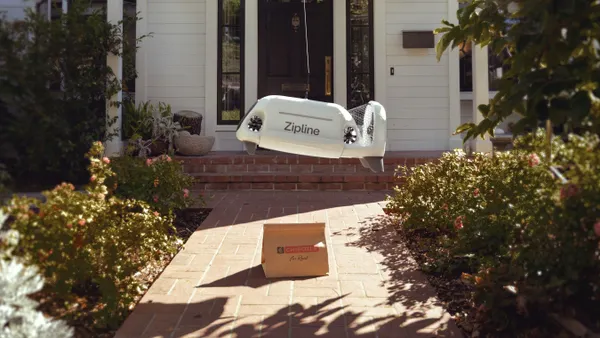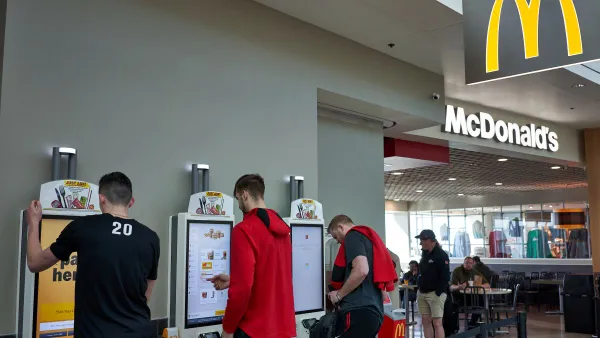Dive Brief:
- McDonald’s struck a 15-year virtual power purchase deal with EDF Renewables North America. EDF’s Apollo Solar project, which is based in Texas, is slated to deliver low-carbon electricity in June 2024.
- The project is expected to meet the electricity consumption of over 1,200 McDonald’s restaurants, or the equivalent of 439,000 metric tons of carbon emissions annually.
- This partnership builds on McDonald’s sustainability goals to buy clean energy and reduce the electricity carbon footprint of its restaurants.
Dive Insight:
McDonald’s is targeting net zero carbon emissions by 2050, and this partnership could help put a dent in its energy consumption. According to EDF, the amount of yearly carbon emissions that will be offset by Apollo Solar’s project represents emissions from more than 95,000 passenger vehicles driven for a year.
“Through the purchase of clean energy from Apollo Solar, McDonald's will be able to reduce GHG emissions in support of their sustainability goals while the project construction phase will provide the local community with a boost to the economy through job creation, local spending with vendors, and an expanded tax base,” Matt McCluskey, vice president of development of the South Central region for EDF Renewables, said in a statement.
The chain’s newly hired global chief impact officer, Jon Banner, will oversee this partnership. Banner, who entered the role on Sept. 6, is tasked with leading McDonald’s global impact team, which includes sustainability and ESG commitments, among other initiatives.
McDonald’s reports it has reduced its absolute greenhouse gas emissions (GHG) of its restaurants and offices by 2.9% compared to 2015, and cut supply chain GHG emissions by 7.8% in the same time frame. Electricity isn’t the company’s biggest sustainability obstacle, however. Last year, Reuters reported 80% of McDonald’s emissions stem from its supply chain operations, especially the production of beef, poultry and dairy.













